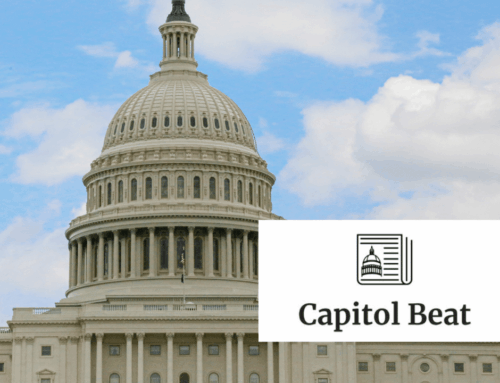The Secretary of the Treasury, Janet Yellen, announced her department is about to exhaust the so-called “extraordinary measures” currently keeping us from tumbling over the cliff and breaching the debt limit.
As Taxpayers for Common Sense has noted before, the debit limit has been modified nearly 100 times since the end of World War II. In our recent podcast at Budget Watchdog: AF (that’s All Federal!) we noted the usual Congressional Kabuki Theatre that accompanies the run up to a potential breach of the debt ceiling. This involves a lot of talk and posturing and gnashing of teeth. Then, poof!, everyone agrees that we can’t allow the government to default and they vote to raise the limit – for the 99th or whatever time. The last time this happened was in August of 2019, during the Trump Administration.
Two years and more than $6 trillion in additional debt later, here we are again. Given the painfully slim margins in Congress, we admitted on the podcast that we aren’t sanguine Congress will get over its partisanship this time. And that is terrifying to budget watchdogs.
Cue Senator McConnell last week on the Senate Floor, “Senate Republicans would support a clean continuing resolution that included appropriate disaster relief and targeted Afghan assistance. We will not support legislation that raises the debt limit.”
If Congress doesn’t extend the debt limit, what will definitely happen? What could happen? And what does it mean for the full faith and credit of the United States?
Here’s what will happen:
- We will be unable to pay the interest on or “service” our outstanding debt. Everybody around the world buys our debt (ironically, because we’re considered a good risk) but a significant portion of which is held by countries we do not consider allies. Think about that for a moment.
- The U.S. stock market’s volatility will increase. Washington’s inability to coalesce around solutions to financial threats can roil the market. We saw this in 2008 and in recent debt limit fights.
- Our cost of borrowing will rise. Have you ever seen the aftermath of a car loan or mortgage default? Credit tanks and borrowing costs, if even an option, skyrocket. The same thing will happen to the U.S. Government.
Here’s what may happen:
- New enrollments for Social Security may be halted and even checks for those already enrolled may not arrive on time.
- Non-allies who hold U.S. Government debt may place pressure on federal officials for “concessions” to continue to hold our debt.
- The rising cost of our debt could make certain big spending packages cough – infrastructure – cough, too expensive to afford.
- The U.S. Dollar may begin to lose its status as the reserve currency of choice, causing shockwaves in major markets like oil and the U.S. stock market itself, both currently denominated in dollars. Even if there is small shift to currencies like the Euro or the Yuan, it will cost the U.S. more to seel our debt.
- The federal government could close except for certain essential functions. This means federal workers, including those who are considered essential, wouldn’t get paid. Remember when World Central Kitchen was handing out free food to federal workers? That could happen again.
- Contracts to private entities for goods and services for the federal government will peter out as appropriated funds dry up. That will affect many sectors, not just those traditionally thought of like military contracting.
Scared yet? You should be. Think of what happens when you throw a pebble into a pond…ripples expand outward. Where might those ripples stop when the “pebble” is actually the size of one of the Great Pyramids of Giza?
But it doesn’t have to be this way. The fact is the debt pushing us to the limit is from spending and tax cut decisions already made. Absolutely we’re concerned with how current spending debates (reconciliation, the tax code, that pesky $1.5 trillion omnibus annual spending bill). But that’s the future. The debt limit is about acknowledging the past. We should not be playing chicken with the full faith and credit of the U.S. Treasury.










